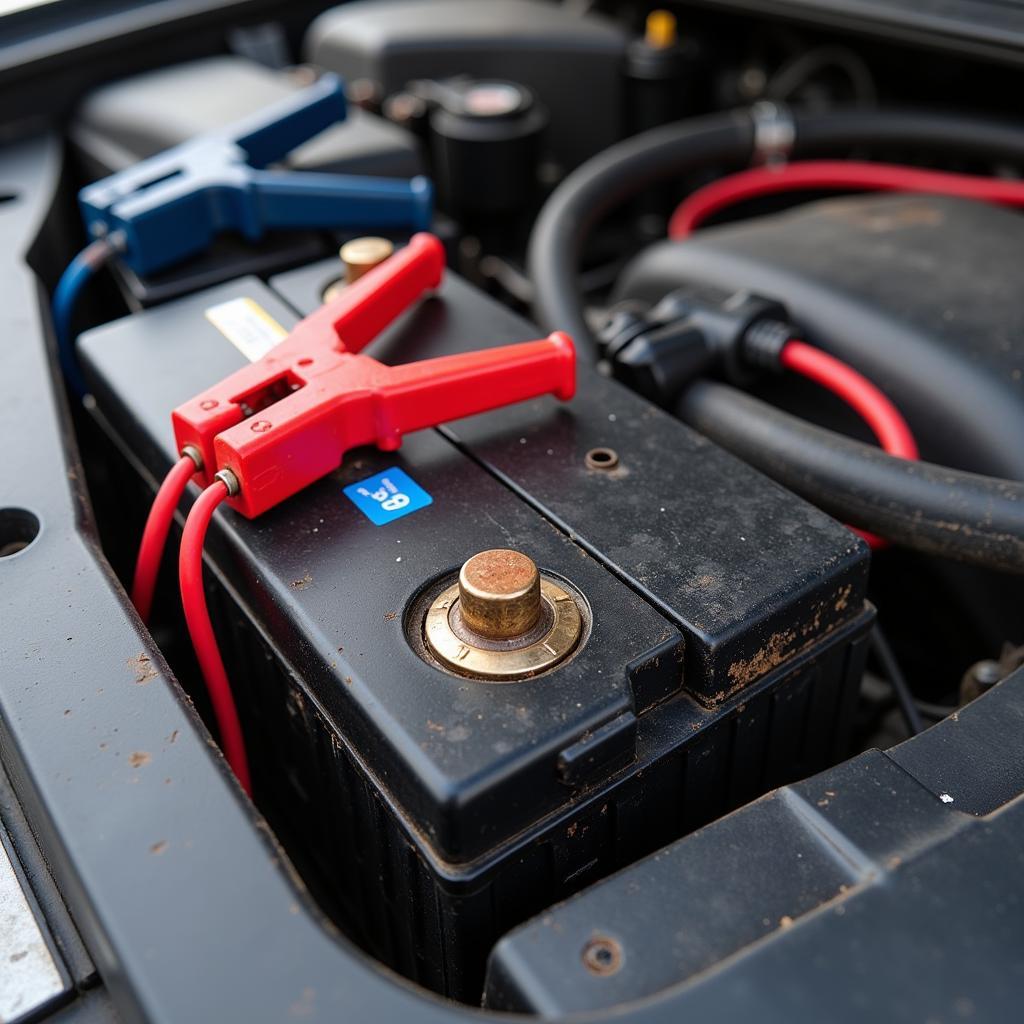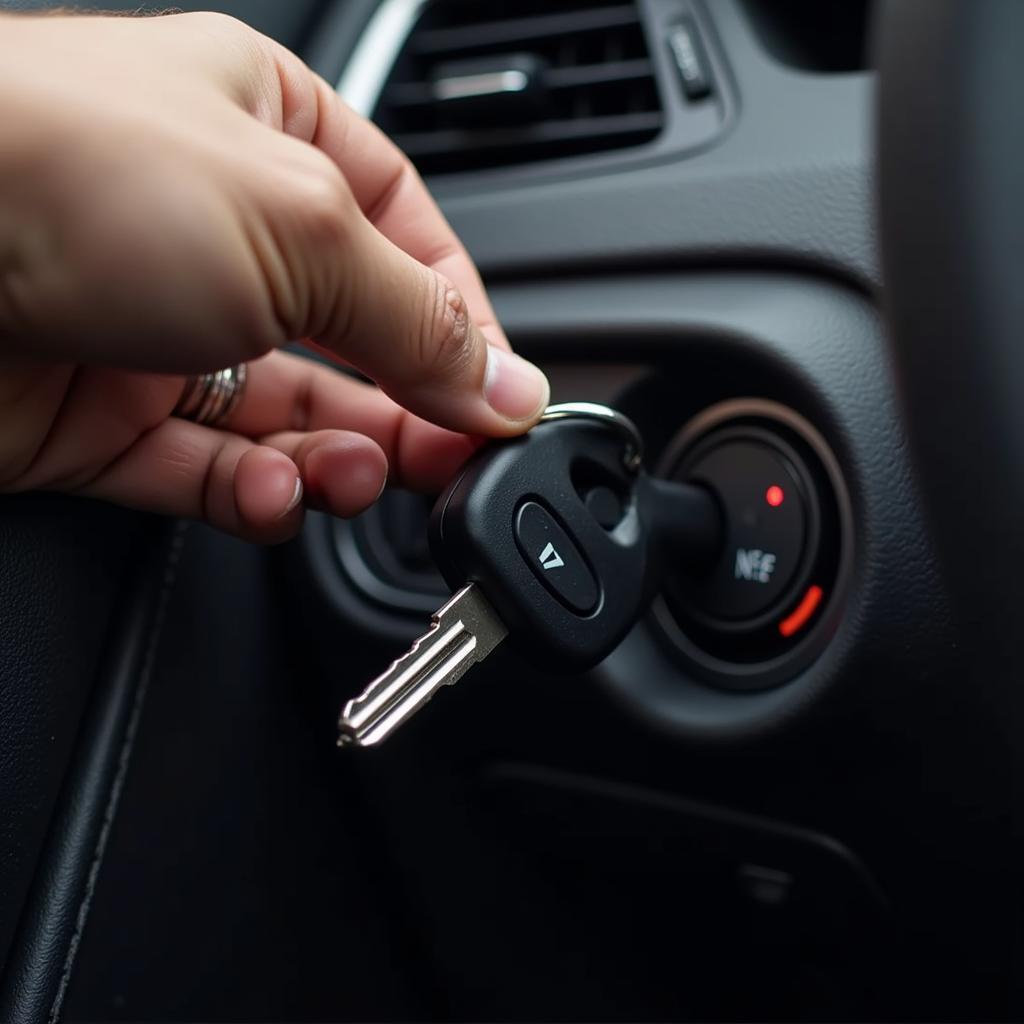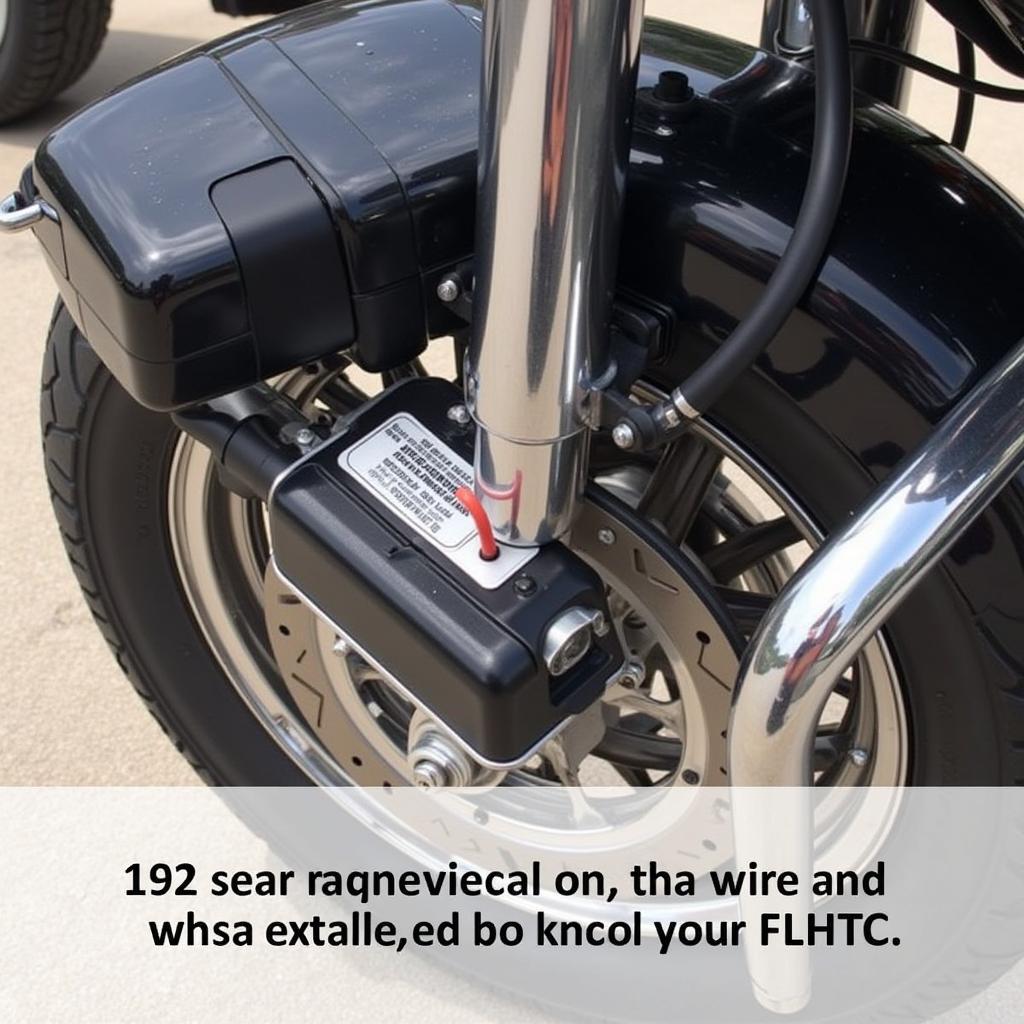Your car died and won’t crank? This frustrating situation can leave you stranded and searching for answers. Don’t worry, this comprehensive guide will walk you through the common causes, troubleshooting steps, and potential solutions to get your car back on the road. We’ll cover everything from dead batteries and faulty starters to more complex electrical issues. Let’s dive in and get your car started again!
 Car Won't Crank Due to Dead Battery
Car Won't Crank Due to Dead Battery
One of the most common reasons a car won’t crank is a dead battery. If your car is completely silent when you turn the key, this is often the culprit. You can try jump-starting your car, as discussed in our guide on my car is not jump starting. If it starts, you’ll need to have your battery tested and potentially replaced. Remember, even if you manage to start car with dead battery, it’s crucial to address the underlying issue. A simple test can tell you if your battery is holding a charge or needs to be replaced.
Common Causes of a Car That Died and Won’t Crank
Several issues can lead to a car dying and refusing to crank. Here are some of the most frequent culprits:
Dead Battery
A dead battery is often the primary suspect when your car dies and won’t crank. Extreme temperatures, especially cold weather, can significantly impact battery performance. Check out our articles on car battery keeps dying in cold weather and car battery dead in winter for more specific advice related to cold weather battery problems.
Faulty Starter
If you hear a clicking sound when you turn the key, but the engine doesn’t crank, a faulty starter motor could be the problem. The starter is responsible for engaging the engine’s flywheel, and a malfunctioning starter can prevent the engine from turning over.
Ignition System Issues
Problems within the ignition system, such as a bad ignition switch, faulty ignition coil, or worn-out spark plugs, can also prevent the engine from starting. These components are crucial for delivering the spark needed to ignite the fuel-air mixture in the engine cylinders.
Fuel System Problems
While less common, a lack of fuel or a faulty fuel pump can also cause a car to die and not crank. If the engine isn’t receiving fuel, it won’t be able to start.
Troubleshooting Steps When Your Car Died and Won’t Crank
Here’s a step-by-step guide to help you diagnose the problem:
- Check the Battery: As mentioned before, a dead battery is the most likely culprit. Attempt to jump-start the car. If it starts, have the battery tested and possibly replaced. Consider whether your battery might recharge on its own – if car battery dies will it recharge can offer insights into this.
- Listen for Clicking Sounds: If you hear clicking when turning the key, it could indicate a faulty starter.
- Inspect the Ignition Switch: Try wiggling the key in the ignition while trying to start the car. A loose or faulty ignition switch can sometimes be temporarily bypassed this way.
- Check for Fuel: Ensure there’s enough fuel in the tank. If the fuel gauge is malfunctioning, you might be out of gas without realizing it.
 Checking the Car Ignition Switch
Checking the Car Ignition Switch
Solutions for a Car That Died and Won’t Crank
Depending on the diagnosed problem, here are some possible solutions:
- Battery Replacement: If your battery is dead and won’t hold a charge, replacement is the best solution.
- Starter Replacement: A faulty starter will require replacement to get your car running again.
- Ignition System Repair: Depending on the specific issue, you might need to replace the ignition switch, ignition coil, or spark plugs.
- Fuel System Repair: If the problem lies within the fuel system, you might need to address a clogged fuel filter, a faulty fuel pump, or other related issues.
“A simple voltmeter can save you a lot of headache. Check your battery voltage before assuming it’s the starter.” – John Smith, Automotive Technician
“Don’t forget to check the battery terminals for corrosion. A simple cleaning can sometimes solve the problem.” – Jane Doe, Auto Electrician
Conclusion
A car that died and won’t crank can be a stressful experience. By following these troubleshooting steps and considering the potential solutions, you can pinpoint the cause of the problem and get your car started again. Remember, a dead battery is often the easiest fix, but don’t rule out other possibilities like a faulty starter or ignition system issues. Regular maintenance can also help prevent these situations in the future.
FAQ
- What should I do if my car died while driving? Safely pull over to the side of the road and try to determine the cause.
- Can a bad alternator cause a car to die and not crank? While a bad alternator can drain the battery, it typically won’t prevent the car from cranking initially.
- How much does it cost to replace a car battery? The cost varies depending on the type of battery and your location, but expect to pay between $100 and $300.
- How long does a car battery last? Car batteries typically last between three and five years.
- How can I prevent my car battery from dying? Avoid leaving lights or accessories on when the engine is off, and have your battery tested regularly.
- Is it safe to jump-start a car? Yes, it’s generally safe if done correctly. However, it’s important to follow the proper procedure to avoid any hazards.
- What should I do if my car still won’t crank after trying all these steps? It’s time to call a qualified mechanic or tow your car to a repair shop for further diagnosis.

